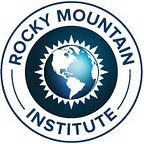On Corporate Social Responsibility
VP of Sustainability at Aspen Skiing Company Auden Schendler on climate change, skiing, and why corporate sustainability is harder than we think
Auden Schendler is the outspoken vice president of sustainability at Aspen Skiing Company. He joined Skico, as it’s known to locals, in 2000 after a three-year stint at RMI during which he first ventured into the realm of corporate social responsibility (CSR). Since then he’s been a veritable one-man tour de force in the CSR world. He’s lectured from Harvard and Yale to Google and Starbucks. He’s been profiled in the pages of Outside and Fast Company. His writing has appeared in publications ranging from Harvard Business Review to Scientific American. He’s been the recipient of global warming innovator recognition from both TIME magazine and the U.S. Environmental Protection Agency. And he’s the author, in 2009, of Getting Green Done: Hard Truths from the Front Lines of the Sustainability Revolution.
Solutions Journal: This year Aspen had its second-driest January since 1935, recording just 5.26 inches when the monthly average is five times that. Meanwhile, meager snowpacks from California to Washington forced the early closure of many ski areas. Is skiing one of the front lines of climate change? And what does Aspen Skico predict for the years ahead?
Auden Schendler: We’re definitely on front lines of climate change. You are seeing the future today. What we fear is warmer weather, more rain than snow, and persistent droughts. The fear is you’re in an increasingly challenging environment to run a ski business. But the broader issue is that everybody’s on the front lines, not just skiing. The bigger issue is the economic impact of climate change, and people’s willingness or ability to go on vacation. Climate change anywhere affects us here.
SJ: Much like the small Caribbean island-nations we’re working with right now on the Ten Island Challenge, ski areas contribute a comparatively negligible amount of carbon emissions yet disproportionately feel the impact of climate change. What’s the value of leading by example with sustainability?
AS: All the ground work we do for efficiency, renewables, sustainable operations is not about solving climate change, because it’s of course not enough. It’s about credibility when you talk to powerful people, or lobby in Congress on climate. You have to walk the talk. You have to show you are diligent, that you are legitimately trying, before you can call for broader action. Aspen has the resources to pursue solutions. If we don’t do it, I don’t know who is going to. We’re also very high profile, so when we do things, it gets press. You could argue we’re obligated to lead.
SJ: Grist once called you a “corporate sustainability guru.” Chief sustainability officer and positions like it seem to have gone from niche and stereotyped to fairly mainstream, at least among major progressive corporations. What does that say about the future of business?
AS: When I was at Bowdoin College, I couldn’t major even in environmental studies, let alone sustainability. No one knew what it was. Bowdoin said you have to study something ‘real,’ which was biology for me. All that has changed now. There are great undergrad and graduate sustainability and business sustainability programs. That’s incredibly encouraging. And yes, there are now a lot of CSOs [chief sustainability officers] in business.
We badly need corporations to not only green their operations, but to change policy. You have to make the leap to policy advocacy.
But the vast majority of those people are dealing with operational greening: efficiency, renewables, supply chain, waste issues. They’re very much in a box and don’t have the power to actually drive the required change we need. What has to happen is the visionaries need to be the CEOs. They need to speak out. We desperately need senior business voices demanding action on climate at the policy level — CSOs talking with government affairs people, backed by CEOs. There’s a big gap. Greening your operation and reducing your carbon footprint has very little to do with sustainability, because you’re not solving climate change by doing that. You have to make the leap to policy advocacy.
SJ: Your book Getting Green Done described some of the challenges of implementing sustainability in a corporate environment. What has changed and what have you learned since its publication in 2009? And to the point of the title, what does it take to get green done in corporations today?
AS: Two key things have changed: 1) All the tough stuff I was trying to get done, and that RMI has long advocated like energy efficiency and renewable energy, all that is now becoming business as usual. That hasn’t always been the case. Now you can’t afford not to do efficiency, to replace light bulbs, to build green buildings. This is all mainstream. That’s all really good news. The problem is that corporations tend to cut 5 to 10 percent of their carbon footprint if they’re lucky, but not the whole enchilada. And 2) that’s why we need to advocate for policy change. It’s become apparent we’re not going to get to the fix without policy. We badly need corporations to not only green their operations, but to change policy.
Interviewed by Peter Bronski, editorial director of Rocky Mountain Institute and Carbon War Room.
Web Extra
For more information on this topic visit: rmi.org/natural++capitalism
